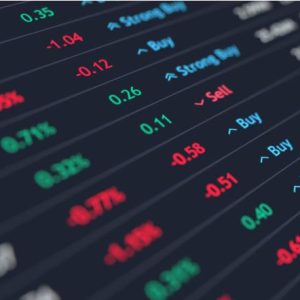Column by Jean-Jacques Pluchart
After 40 years of de-industrialization, the subject of “reindustrialization” has been making a comeback in public discourse, since 2009. Several initiatives have been taken by successive governments: the States General of Industry, the Gallois report on industrial competitiveness, France Relance, France 2030.
The Lluansi Report
In November 2023, the Ministry of Economy commissioned Olivier Lluansi, former interministerial delegate for Industrial Territories, to carry out a mission on the re-industrialization of France by 2035. His conclusions have not ultimately be made public, but they have been presented in a book analyzed by the Turgot Club (see clubturgot.com). The report reveals that France is one of the most de-industrialized countries in Europe and ranks among the lowest one in the European Union, ahead of Greece. The 10% share of GDP covered by industry has stagnated at 10% since 2009 and can only reach 12-13% by 2035. France would ensure at least a balanced trade balance on manufactured goods. To stem the €60 billion annual deficit, he advocates the creation of 60,000 industrial jobs per year, three times the 20,000 industrial jobs created per year in recent years. He notes that “50% of people trained in industrial trades will do something else”.
According to the report, the industrial recovery presupposes a patriotic leap and a more massive recourse to public order. The “Made in France” is an under-exploited lever; it could bring in €15 billion more per year, or 25% of the trade deficit in manufactured goods. The report also recommends not to concentrate resources on breakthrough innovations and gigafactories, which represent only 20 to 30% of the re-industrialization potential, when SMEs and mid-caps make up two-thirds. This industrial fabric in the heart of medium-sized cities needs public support to regenerate. Re-industrialization also implies to reduc the depenedence of French supply chains and freeing up land, while remaining Climate Law compliant, which sets a target of zero net artificialization by 2050.
The White paper “Everyone can make French industry shine”
The Les Influstriels collective, which aims to promote the attractiveness of the French industry, published a White paper in December 2024 entitled “Everyone can make French industry shine”. It reveals that “83% of French people have considered it to be in decline for several years”. The authors question why the industry suffers from such a negative image. They note that France has many startups and SMEs engaged in new technologies and sustainable economies – including decarbonization – but that they lack public and private funding. However, since the green industry law, the French can participate in the ecological transition and rei-ndustrialization in various ways: life insurance, a Pension scheme (PER), private equity funds… In September 2024, Bpifrance launched the BE3 private equity fund, the 4th product of its retail range, accessible to the French from €500.
In 2024, the government also launched the “turnkey sites-France 2030” system, selecting 55 industrial sites from around a hundred applicants. This system allows project leaders to access land in the short term, and allows developers and local authorities to enhance the value of the labelled sites. According to the Minister of Ecological Transition and Territorial Cohesion, the number of applications received from local authorities, private companies and various organizations, reflect an advance in reindustrialization. “France 2030 turnkey” sites have been created to accelerate the installation of factories. These sites will be decontaminated, equiped with access roads, connected to utility networks and will benefit from accelerated administrative procedures. With this concept, the government wants in particular to reduce the duration of industrial installations from 17 months on average to 9 months. The sites were chosen according to 5 criteria: economic attractiveness – location, accessibility, transport axes, employment area, differentiating ecosystem; limited environmental impact – land sobriety and rehabilitation of brownfield sites; site maturity – potential by 2030; relevance of the project to be integrated into the territory; land control of the site. The France Foncier+ portal already lists more than 600 sites available or in the process of being made available. The redevelopment of brownfield sites has become one of the priorities and land recycling appears to be a key measure, which falls within the context of the law on green industry. The 55 sites are spread over the entire territory, but if all the regions are represented, there are 1 to 8 sites per region, the best endowed being the PACA region, with 8 sites, followed by Normandy (7); Occitania and Île-de-France (6 each). The size of the chosen sites is very variable, since there are projects of 3 ha as well as 340 ha, the challenge being to give oneself the “means to attract all projects, from the industrial SME to the gigafactory.”
[1] Olivier Lluansi, “Réindustrialiser, le défi d’une génération”, éditions La Déviation, 2024.






